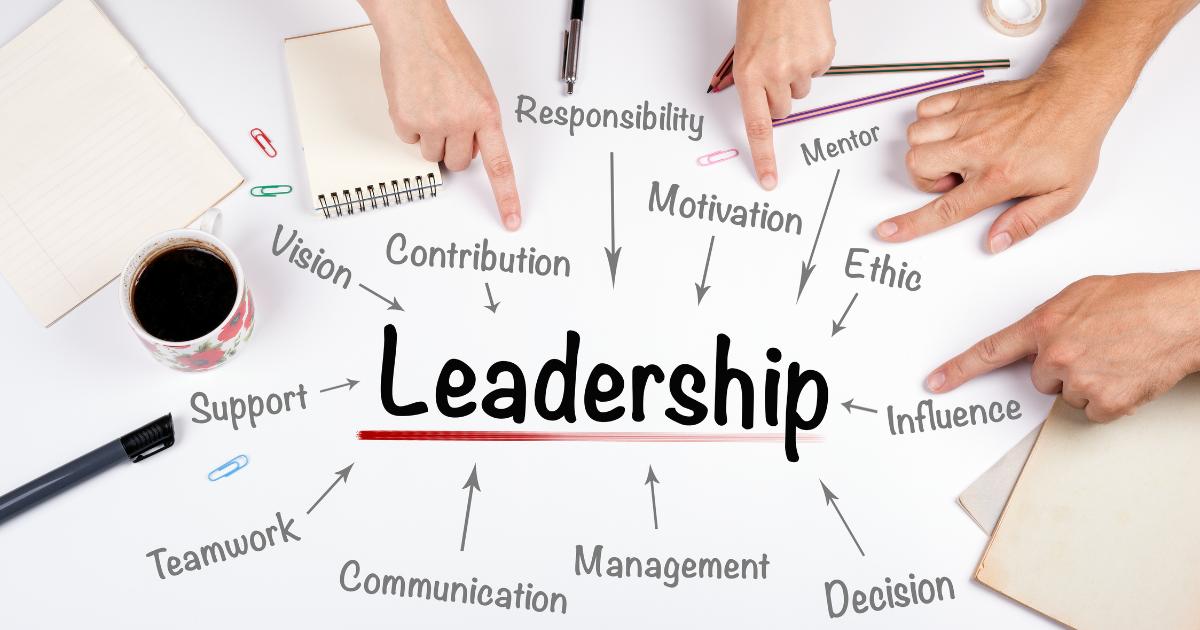Becoming a leader is not about holding a title—it’s about embodying a set of skills, qualities, and mindsets that inspire others and drive success. Great leaders don’t just tell people what to do; they guide, motivate, and empower those around them. Whether you’re leading a small team or a large organization, understanding the key requirements for leadership is essential. In this article, we will explore the top 10 essential qualities and skills that you need to become a successful leader.
Advertisement
1. Vision and Strategic Thinking
Every great leader starts with a clear vision. Leaders need to have the ability to see the bigger picture and guide their teams toward a common goal. Without a vision, it’s easy to become directionless, which can create confusion and disengagement among team members. A leader should be able to articulate the long-term goals of the organization and develop strategies to achieve them.
Strategic thinking also requires the ability to anticipate challenges, adapt to changing circumstances, and make decisions that will benefit the organization in the long run. As the business environment evolves, a leader must remain flexible and be willing to pivot strategies when necessary. With a compelling vision and strong strategic thinking, leaders are able to inspire teams to work toward achieving collective goals, even in the face of adversity.

2. Emotional Intelligence (EQ)
Emotional intelligence (EQ) is critical for effective leadership. It involves the ability to recognize and understand emotions—both your own and others’—and use this awareness to manage behavior and relationships constructively. Leaders with high EQ can build stronger connections with their teams, resolve conflicts more effectively, and create a supportive work environment.
A leader’s ability to manage emotions during high-pressure situations helps maintain team morale and productivity. Whether it’s providing constructive feedback or addressing a crisis, leaders with high EQ are better equipped to navigate the complexities of human relationships and foster an atmosphere of trust and respect. Emotional intelligence isn’t just about being empathetic—it’s about using emotional awareness to make informed decisions and connect with people on a deeper level.
3. Communication Skills
Effective communication is a cornerstone of strong leadership. A leader must be able to clearly convey ideas, expectations, and feedback in a way that is both informative and inspiring. Communication is not just about speaking—it’s about listening, too. Leaders who actively listen to their team members and respond thoughtfully foster a collaborative environment where everyone feels valued.
Being able to communicate effectively across various channels, whether in meetings, emails, or one-on-one conversations, helps leaders align their team with organizational goals and build trust. Leaders must also adapt their communication style based on the audience, ensuring that their message is tailored for maximum impact. Strong communication skills allow leaders to motivate their teams, address concerns, and celebrate successes.
Advertisement
4. Decision-Making and Problem-Solving Skills
Leaders are often faced with tough decisions that require quick thinking and sound judgment. Whether it’s resolving a conflict, addressing performance issues, or navigating market challenges, effective decision-making is an essential leadership skill. Leaders need to assess situations, gather relevant information, and make choices that are in the best interest of the team and organization.
Great leaders also excel at problem-solving. They approach challenges as opportunities for growth and innovation, finding creative solutions even when resources are limited. Being decisive and solution-oriented helps a leader inspire confidence in their team, especially during times of uncertainty or crisis.

5. Integrity and Ethics
Integrity is the foundation of any successful leadership journey. Leaders must model ethical behavior by being honest, transparent, and accountable. When leaders demonstrate integrity, they create a culture of trust, where employees feel confident in their direction and decisions. This trust is essential for fostering loyalty, boosting morale, and encouraging collaboration within teams.
Leaders who lead by example, consistently upholding ethical standards, inspire their teams to do the same. Ethical decision-making also means making choices that benefit the greater good, not just individual interests. Whether faced with personal or professional challenges, a leader’s commitment to integrity is what sets them apart as a true leader.
6. Adaptability and Resilience
The business world is constantly changing, and so are the challenges that leaders face. To be an effective leader, it’s crucial to remain adaptable and resilient, even when things don’t go according to plan. Leaders who demonstrate flexibility can navigate unexpected changes and lead their teams through adversity.
Resilience is about maintaining a positive outlook in difficult times and finding the strength to bounce back from setbacks. It’s important for leaders to model this behavior for their teams, as it encourages perseverance and helps teams stay focused on long-term goals despite short-term obstacles. Adaptability ensures that leaders can pivot strategies, adopt new technologies, and stay ahead of industry trends.
Advertisement
7. Delegation Skills
Effective delegation is a crucial leadership skill. Leaders cannot do everything themselves, and trying to will only result in burnout and inefficiency. A strong leader knows how to delegate tasks to the right people, based on their strengths and expertise. By distributing responsibilities, leaders ensure that their teams remain productive and engaged, and they free up time to focus on higher-level tasks.
Delegation is also a key tool for developing team members. By giving others opportunities to take on challenging projects, leaders help their employees grow and build confidence in their own abilities. A leader who delegates effectively fosters a sense of empowerment and accountability across their team.

8. Confidence and Self-Awareness
Leadership requires confidence—not arrogance—but the belief that you can achieve your goals and inspire others to do the same. Leaders who exude confidence inspire trust and motivate their teams to take on new challenges. At the same time, self-awareness is essential for leadership. Knowing your strengths and weaknesses allows you to continuously improve and seek feedback from others.
Leaders who are confident in their abilities can make tough decisions, accept responsibility for their actions, and encourage others to perform at their best. Self-awareness also leads to better emotional regulation and communication, helping leaders maintain composure in stressful situations.
9. Accountability and Responsibility
Leaders are responsible for both their own actions and the actions of their team. Holding yourself and others accountable is a vital leadership trait. When leaders take responsibility for their decisions, including mistakes, it fosters a culture of ownership within the team. Accountability also means setting clear expectations, providing feedback, and ensuring that team members are following through on their commitments.
By demonstrating accountability, leaders show that they are invested in their team’s success and growth. They provide the structure needed for success while maintaining a sense of fairness and transparency.
10. Continuous Learning and Development
Lastly, great leaders never stop learning. Leadership is a dynamic skill that requires constant development and adaptation. Leaders who are committed to self-improvement are more likely to inspire the same mindset in their teams. Whether through formal education, mentorship, or self-reflection, continuous learning allows leaders to stay at the forefront of their industries.
Leaders who actively seek out new knowledge and skills are better equipped to tackle challenges, embrace change, and guide their teams through complex situations. Investing in personal development is a key strategy for maintaining effective leadership in the long term.
Advertisement
Final Thoughts
Becoming a leader is a journey that requires time, dedication, and a commitment to continuous growth. The top 10 requirements outlined above—ranging from emotional intelligence to continuous learning—are essential for anyone looking to lead with impact and inspire others. By cultivating these qualities, you can develop the leadership skills necessary to navigate the challenges of today’s rapidly changing business environment. Remember, leadership is not about being in charge—it’s about empowering others to achieve greatness.
References
- Goleman, Daniel. Emotional Intelligence: Why It Can Matter More Than IQ. Bantam, 1995.
- Northouse, Peter G. Leadership: Theory and Practice. Sage Publications, 2021.
- “The 5 Most Important Leadership Skills You Need to Develop,” Harvard Business Review, accessed November 2024, https://hbr.org.
- “What Makes a Great Leader,” Forbes, October 2023, https://www.forbes.com.


